The Power of Here and Now
by Swami Sitaramananda
10
AUGUST, 2018
Take a moment to contemplate the idea that our mind is our instrument to perceive reality and to learn our lessons in life. The power of here and now is the only way to solve life’s mysteries.
As a matter of fact, all our experiences in life are through our mind, our emotions, our senses. In Yoga, we use the term” mind” generically, for all mental functions, either perception, memory, decision making and feeling.
Indeed our mind is very powerful and it is important for us to know it better and know how to control our mind.
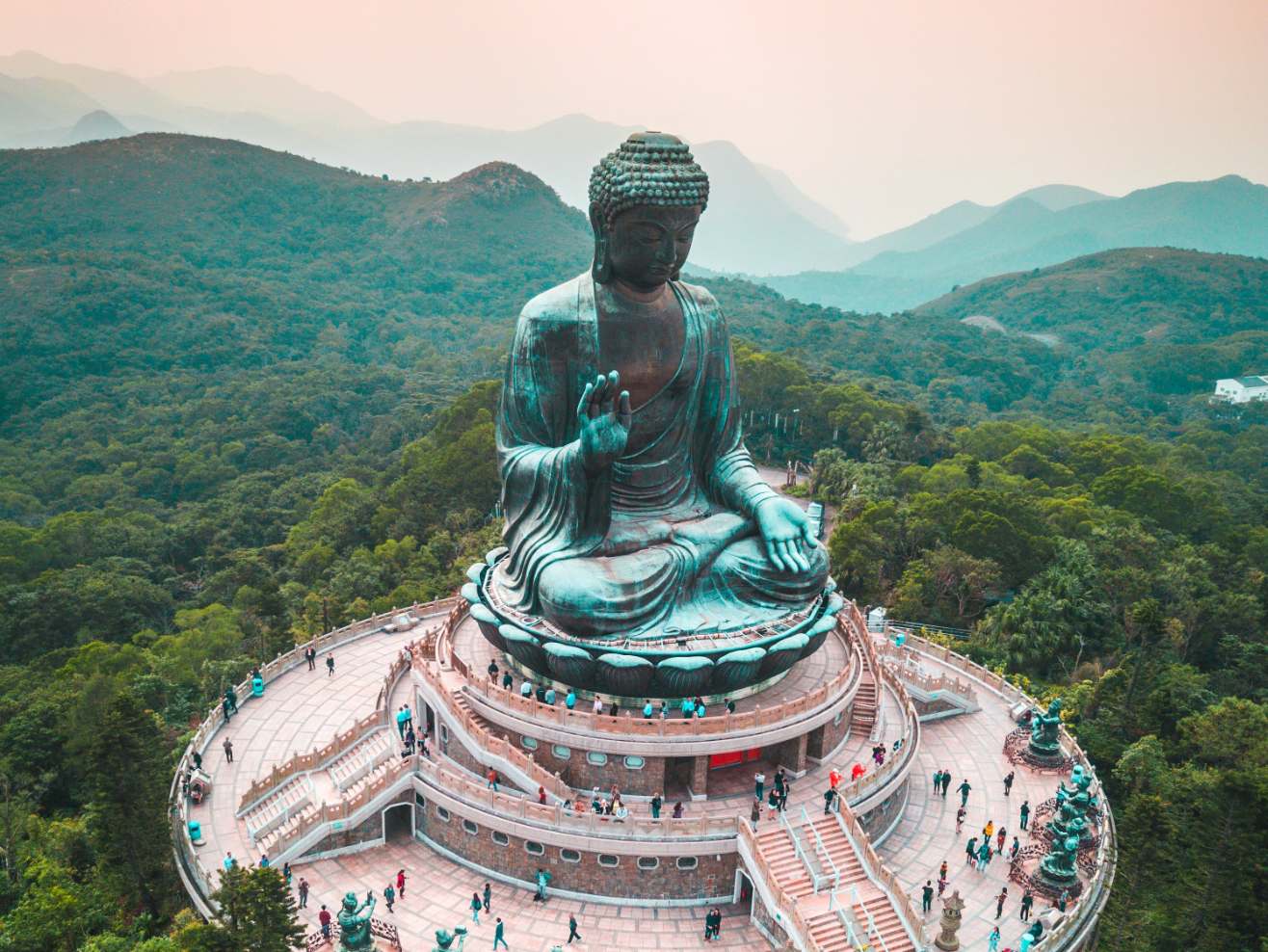
Buddha statue represents one who knows the mind.
Be Here and Now
To learn our life’s lessons is the purpose of our birth. Different minds perceive different realities.
In fact there is no objective reality out there, as we see things according to our mental preconceived ideas.
This is the reason why Yoga teachings and Yoga practice and techniques help us to purify the mind in order for us to see a universal reality that is closer to the Universal Truth, which leads us to peace and happiness.
Yoga practice and techniques help us to purify the mind in order for us to see a universal reality.
Swinging of the Mind
For this reason, the yogis always observe the mind and endeavor to understand its workings.
Particularly, they observe that the mind is constantly swinging like the pendulum of a clock, between likes and dislikes.
As a matter of fact, we think a lot about what we are attracted to and what we desire and in the same token, we think a lot about the opposite, what we reject and what we have aversion for.
Really, we dislike certain things, either people, objects or places. In fact, we run away from them. Thus, the mind is constantly in movement searching for happiness and this makes us constantly restless.


Our mind is like a swing that is constantly changing.
What is our mind doing?
See for a moment how we keep ourselves busy in our minds? We are busy with two types of thoughts: First, we are looking forward to future events or things that we expect to come in the future.
We use our imaginations, we daydream, we scheme and plan, and hope for things that will fit to our idea of a desirable outcome.
Secondly, we are so attached to what has happened that is not fitting our expectations and we spend time reacting to our past events and memories.
We spend our mental energy regretting and rearranging our past, and ruminate about what already has happened.
Birth and Rebirth
From time immemorial, the yoga masters have warned us about our mental tendency that traps us in an endless circle of desire, expectation and disappointment.
Furthermore, they warn us that we will continue to experience the same frustrations again and again and that these are our karmas, leading to births and rebirths.
We did not understand these teachings correctly most of the time. Either we have a fatalistic view about our destined karmic situations and resign ourselves.
The other attitude is to fall into indifference, denial or resistance to any teaching, carrying on with our ways, justifying ourselves with our limited views.
The yoga masters have warned us about our mental tendency that traps us in an endless circle of desire, expectation and disappointment.
Yoga Shows us the Way
Remember, the way out is to stop the swinging of the mind and experience the liberating moment of HERE AND NOW.
In the Here and Now, we have all possibilities, all creativity, all fulfillment, all satisfaction, all happiness.
In the Here and Now, we actualize ourselves and feel powerful, becoming all that we can be.
There will be no fears, regrets, anticipations, worries, likes and dislikes, duality between self and others. Also, in the Here and Now, we are One.
Furthermore, there will be no comparison, no feeling of inferiority or superiority, no feeling of inadequacy, nor pride. Indeed, there will be no waiting for approval nor self-efforts to prove oneself in the eyes of others.
How wonderful! We are able to solve all the paradoxes in life, all the conflicts in relationships, and able to resolve the inner conflicts we have between contradicting desires.
In summary, In the Here and Now, we are free– we are who we are.
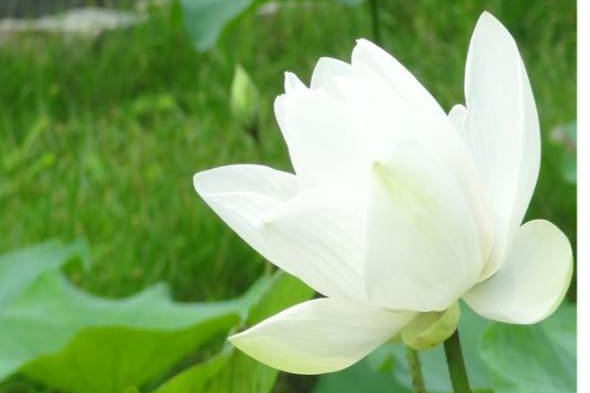
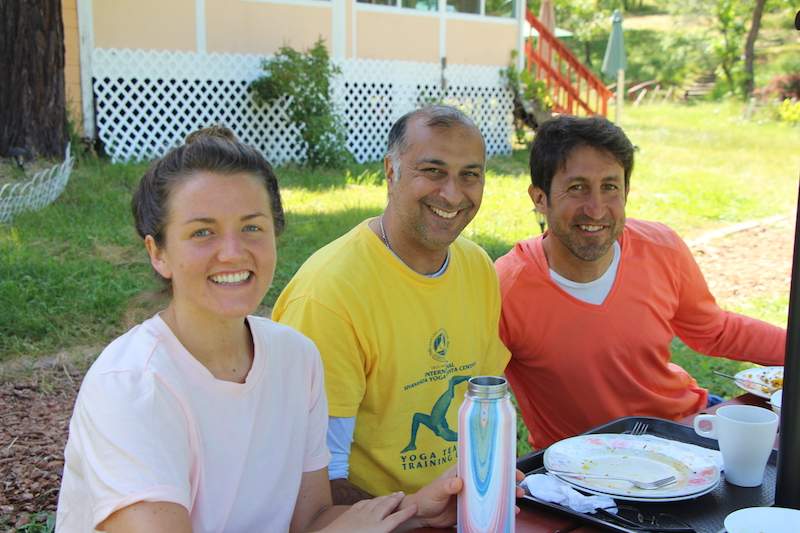
Be detached like the lotus unaffected by the world.
How to be Here and Now
Yogic philosophy declares that time and space and causality are the modes of the mind only. Without the mind, there is no time, space and causality. What that’s really mean?
It means that One lives in the Eternal without reason and conditions, in the state of unconditioned bliss, no matter where One is , and no matter the nature of life’s circumstances.
The Yogis say, “To transcend time, you need to transcend the mind.”
In fact, all yogic techniques of meditation help us to transcend the mind, or at least to calm the mind down.
Additionally, the Yogis keep the mind focused, unwavering, firm and steady in the moment, detached while performing the task at hand, without distractions.
A sublime state of being
This is also called the state of being that is “balanced with attention”, or the state of equanimity.
The yogis endeavor to keep the mind under control, not going to extremes in anything, not desiring, not disliking, not overly active nor passive or depressed, not identifying with something external and becoming attached, nor hiding from the world out of fear.
This exalted state of being is called being “in the world but not of the world,” like the lotus that grows out of the mud yet keeps its purity and fragrance.
The yogi stays focused on the eternal Here and Now of his own eternal Soul and accomplishes everything while being.
This exalted state of being is called being “in the world but not of the world.”
How to attain that state?
This is accomplished step by step by starting to practice daily asanas and pranayama to purify and calm down the mind, also to detach from our actions in life and our current identifications.
Last but not least, this transparent state of mind is achieved through daily practice of meditation and concentration.
The mind will become calmer and clearer and its motives and behaviors will become known by the meditator.
The meditator will experience glimpses of eternity. Eventually, there will be only one experience, there will be only One Reality.


Practicing Meditation and Pranayama can bring us back to the Hear and Now.
Emotional Health through Pure Love
Furthermore, mental and emotional relaxation is not being indifferent or being aloof. It is learning what pure love or devotion is.
Through the purification of our heart and emotions, we become mature and “emotionally intelligent”. This is an endeavor of a life time, so one needs to be patient.
How does it work? We need to learn first to regulate our emotions, avoid extremes, extreme highs or extreme lows.
Secondly, we need to learn to calm our desirous heart and to be content and grateful instead for all gifts received.
This journey of mental and emotional discipline will allow us to experience the bliss within. In turn, the bliss experienced within will free us from compulsions and desires.
Conclusion
The Sivananda Yoga of synthesis is the wonderful way to attain that sublime state of mind. Uniquely, it combines in daily life the yogic techniques from the classical 4 paths of Yoga.
We just need to immerse ourselves in the theory and practice of Karma Yoga, Bhakti Yoga, Raja Yoga and Hatha Yoga, plus the philosophy of Vedanta and the techniques of self enquiry of Jnana Yoga.
However, remember what Swami Sivananda said: “one ounce of practice equals tons of theory!”
Therefore, at this moment you read this line, commit ourselves to this daily marvelous practice with the help of an able teacher. A brilliant future is awaiting you!
Upcoming courses and retreats on our Program Calendar >>
Check out the 4-week Teacher Training Course which immerses you in these techniques >>
Follow us
[et_social_follow icon_style=”slide” icon_shape=”rounded” icons_location=”top” col_number=”2″ counts=”true” counts_num=”0″ outer_color=”dark”]
Subscribe to the Yoga Farm Newsletter for regular updates, articles, and upcoming events.
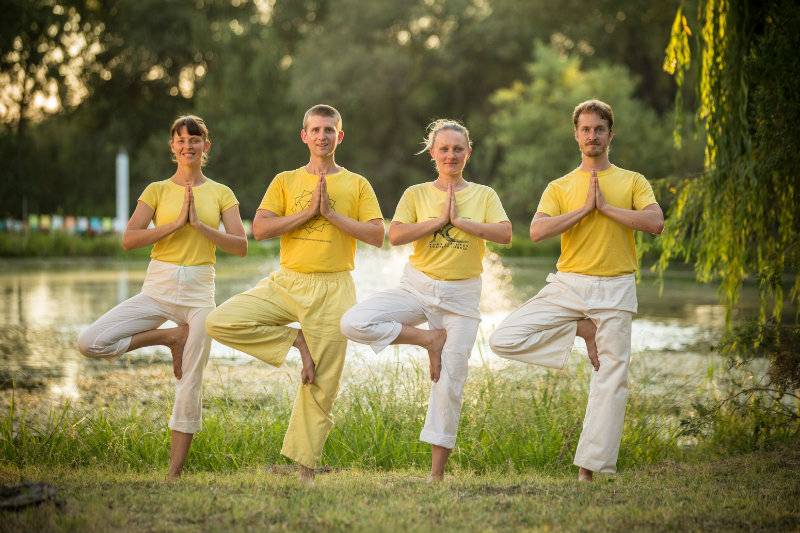
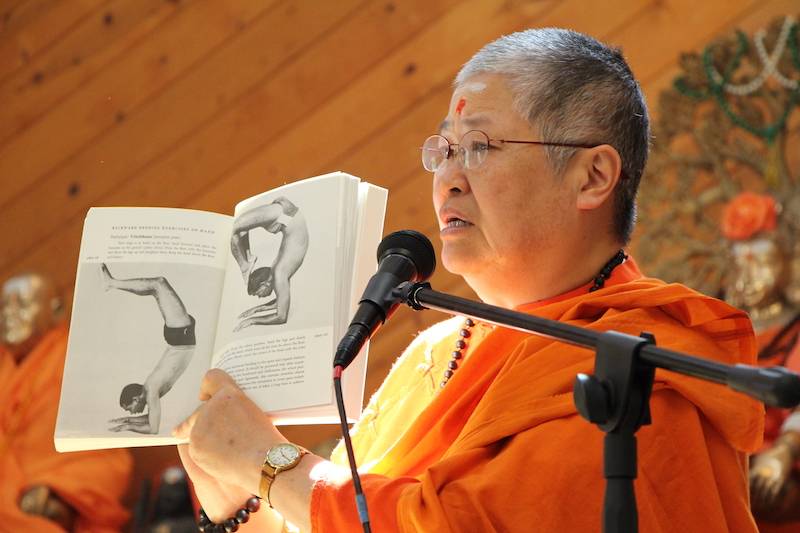
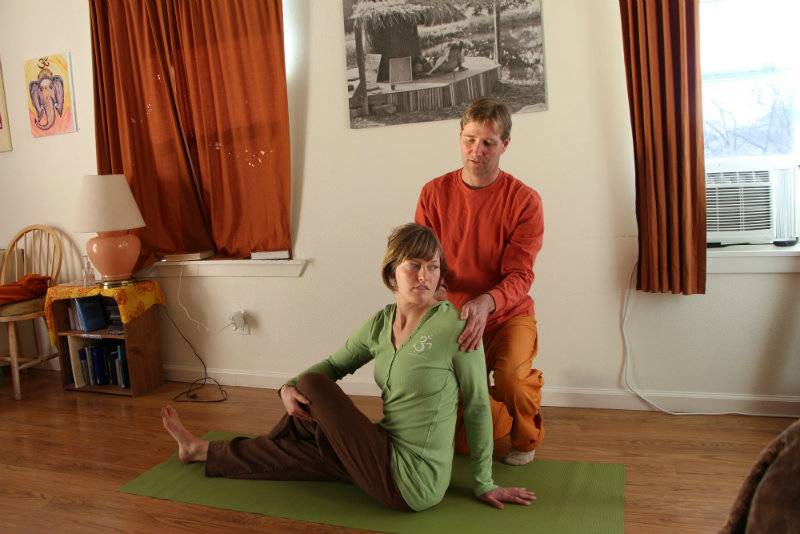

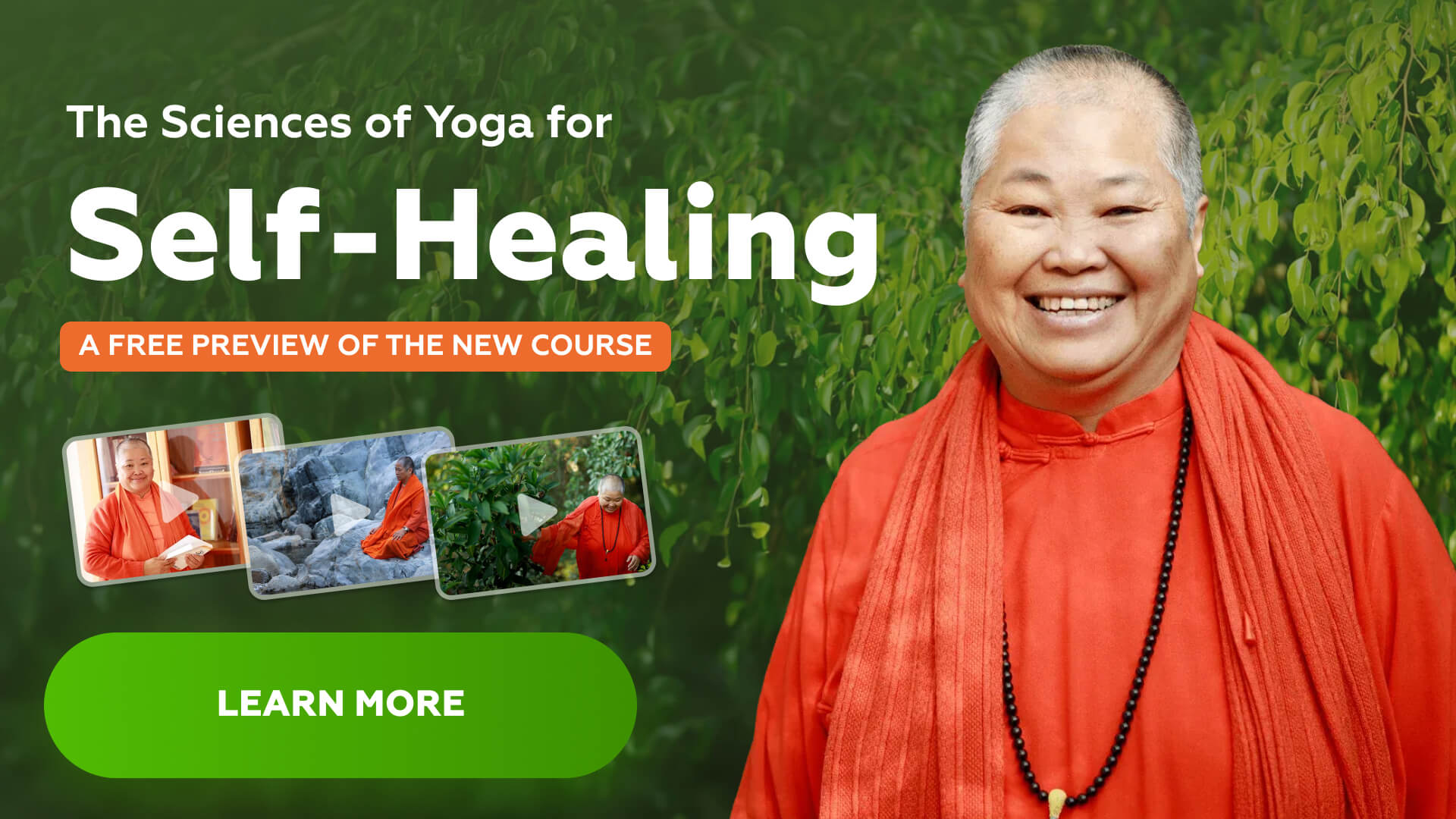
0 Comments